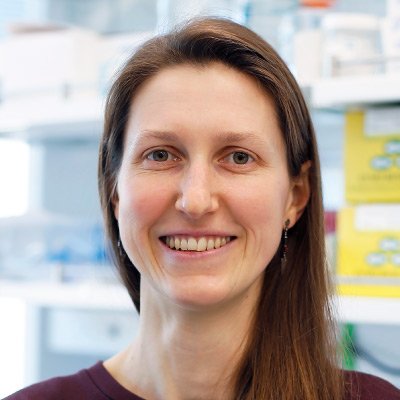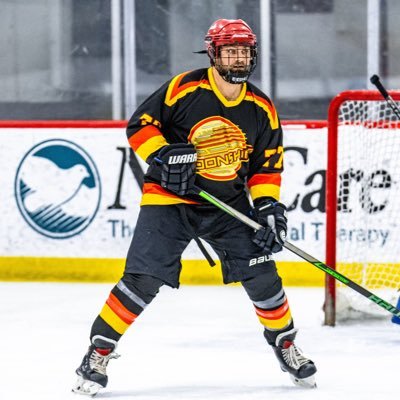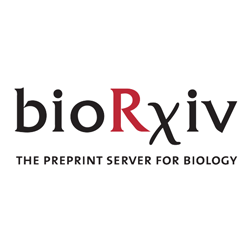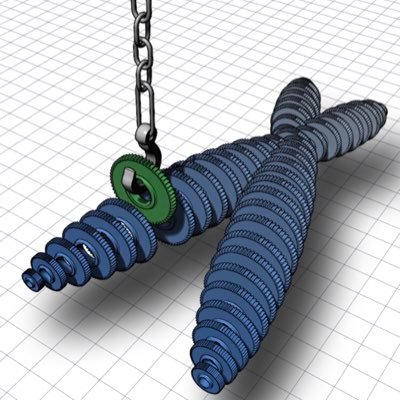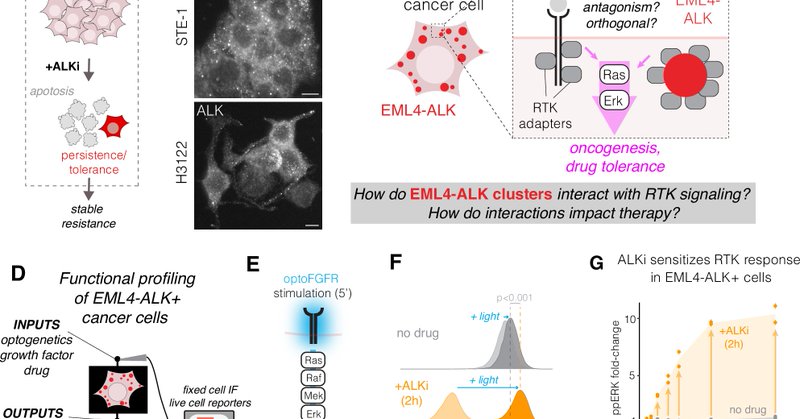
Yevgeniy Serebrenik
@YSereb
Followers
121
Following
215
Media
3
Statuses
72
Assistant professor at Rutgers @RWJMS in Biochemistry and Molecular Biology. We study proteostasis using cutting-edge genomics.
Joined January 2014
Excited to share our lab’s first publication! A review on how pooled protein tagging with ligandable domains is unlocking proteome-scale biology. Spearheaded by the talented @KELarrimore. https://t.co/nxvMtcCDKy
frontiersin.org
Multifunctional ligand-binding domains have revolutionized cell biology by enabling the precise visualization and manipulation of fused proteins of interest ...
2
3
5
So you want to change transgene expression: just change your promoter, right? Changing the promoter increases RNA and thus protein levels. What more could be happening? [1/n] Well, promoters don’t just set RNA levels; they uniquely transform how RNAs are transmitted into protein
11
116
585
In the nucleus, many intrinsically disordered proteins (IDPs) form condensates. What IDP sequence features drive this behavior? We developed CondenSeq, a high-throughput method to measure nuclear condensate formation & applied it to ~14000 IDPs to find out https://t.co/qfa8jtvFOp
4
37
134
Our lab at the Weizmann Institute was hit tonight by Iran We will rebuild and return 💪
492
636
8K
Scouring the human Hsp70 network uncovers diverse chaperone safeguards buffering TDP-43 toxicity
biorxiv.org
Cytoplasmic aggregation and concomitant dysfunction of the prion-like, RNA-binding protein TDP-43 underpin several fatal neurodegenerative diseases, including amyotrophic lateral sclerosis. To...
2
6
23
Excited to to see our collaboration with @GMBurslem lab published today! This is part of our ongoing long term goal of achieving scalable non-disruptive and direct imaging and perturbation of the endogenous proteome https://t.co/HJX3JHvBIY
science.org
The ability to study proteins in their native cellular context is crucial to our understanding of biology. In this work, we report a technology for intracellular protein editing, drawing from split...
5
24
123
Thrilled to see our work now published in @MolecularCell! It was an incredible privilege to do my postdoc with @ophirshalem and work alongside the super talented @stephsansbury and our amazing co-authors. Excited to keep building on this research in our new lab at @RWJMS!
Check out our paper, now extensively revised and published in @MolecularCell! This has been a real tour de force led by @stephsansbury and @YSereb and we are very excited about the findings and future potential of this approach https://t.co/XLpJxmzGvh
2
6
13
🚨Paper alert 🚨 Our latest research is out in @Nature! We reveal a surprising new role for the proteasome in innate immunity: generating antimicrobial peptides that can directly disrupt bacterial membranes. 🦠⚡ @WeizmannScience @Sys_Immunology 🔗 https://t.co/YzgdM8gsON 🧵👇
nature.com
Nature - Proteasomal degradation of cellular proteins generate defence peptides constitutively and in response to bacterial infection. Such peptides might provide a source of natural antibiotics...
23
53
166
I am extremely proud to see our work about Hepatitis B now published in @CellCellPress. From basic research to identifying the key step of infection & a potential first drug for curing this devastating disease. This has been an incredible journey.🧵 https://t.co/wfdbwQmw4J
23
33
196
The Kappel Lab is opening soon at UCLA and we’re hiring Staff Scientists to help lead our wet-lab projects & to assist with lab management! We have open positions for candidates with a PhD & for recent college grads. Learn more and apply: https://t.co/CoupN3mPHm Please RT!
5
92
307
Excited to announce our move to Stanford and the Arc Institute! We're hiring postdocs to explore the interplay between immune cells, metabolites and the microbiome in cancer, inflammation and metabolism. Apply here: https://t.co/Y8blYx7kDj
#Postdoc #Stanford #ArcInstitute
7
47
291
Very excited to share our new paper out in @Nature today, led by my amazing postdoc, @QZ_ChemSynBiol (now at @LifeAtPurdue) in collab w/ @themazelab (with Li & @MuirLab) showing a beautiful mechanism of monoamine modification swapping in neurons 🤩 https://t.co/HM1KYOQdtd
25
20
137
NLS-binding deficient Kapβ2 reduces neurotoxicity via selective interaction with C9orf72-ALS/FTD dipeptide repeats:
nature.com
Communications Biology - The NLS-binding deficient Kapβ2W460A:W730A was shown to be able to selectively target R-DPRs without disrupting normal FUS assembly, which offers a potential...
0
8
27
The Serebrenik Lab is hiring! Join us in unraveling proteostasis with pooled protein tagging and manipulation! Interested postdocs can learn more & meet other excellent labs at the Rutgers Postdoc Peek (Apr 3-4, 2025). Apply by 1/8/25:
1
11
18
Single cells can learn without a nervous system, but how? In our new preprint, Deepa Rajan and I describe a simple model for habituation in Stentor cells, based on mechanoreceptor internalization and recycling, and test it with quantitative experiments. https://t.co/R9bFjmtGp9
5
38
188
Thrilled that our work on the functional effects of EML4-ALK assemblies in cancer cells is now published in @NatureComms. Herculean effort through 2.5+ years of peer review by @David_GonzMar and @LeeeRoth.
nature.com
Nature Communications - The EML4-ALK oncogene forms cytoplasmic protein condensates that are associated with its oncogenic signaling. Here, the authors demonstrate that these EML4-ALK assemblies...
So excited to share our latest on how oncogenes and drugs corrupt cell signal perception, feat. protein condensates, optogenetics, Erk pulses, and drug resistance -- something for everyone! Led by @David_GonzMar with huge assist from @LeeeRoth
https://t.co/SBOVKaqPXS
11
17
77
Excited to share our new paper where we explore why dCas9-KRAB protein levels drop so drastically after neuronal differentiation in WTC11 and KOL2.1J iPSC lines. https://t.co/SBRXfWau75
biorxiv.org
The use of CRISPR-associated enzymes in iPSC-derived neurons for precise gene targeting and high-throughput gene perturbation screens offers great potential but presents unique challenges compared to...
9
44
204
Open season on FOXA1! Our paper with the Cravatt group is out today in @MolecularCell. Please check out the updated data, including a new discovery that FOXA1 ligands mirror the effects of a nearby prostate cancer mutation. https://t.co/CiO6oRVx9N (1/2)
7
37
222
Our take on striking new findings from the Ryskeldi-Falcon lab on hybrid protein filaments in disease. I suspect this will be the tip of the iceberg, and there are additional implications for normal cell biology from their study. https://t.co/WDfogGnG2H
nature.com
Nature - Proteins TDP-43 and ANXA11 form hybrid filaments in neurons.
1
9
59
Excited to see the revised version of our paper now published at @CellGenomics led by @YSereb
https://t.co/rqJGg0zsT3
cell.com
Serebrenik et al. develop a method for pooled induction of ectopic protein-protein interactions by combining gene tagging using a ligand-binding domain with generic heterobifunctional small molecul...
6
17
83


